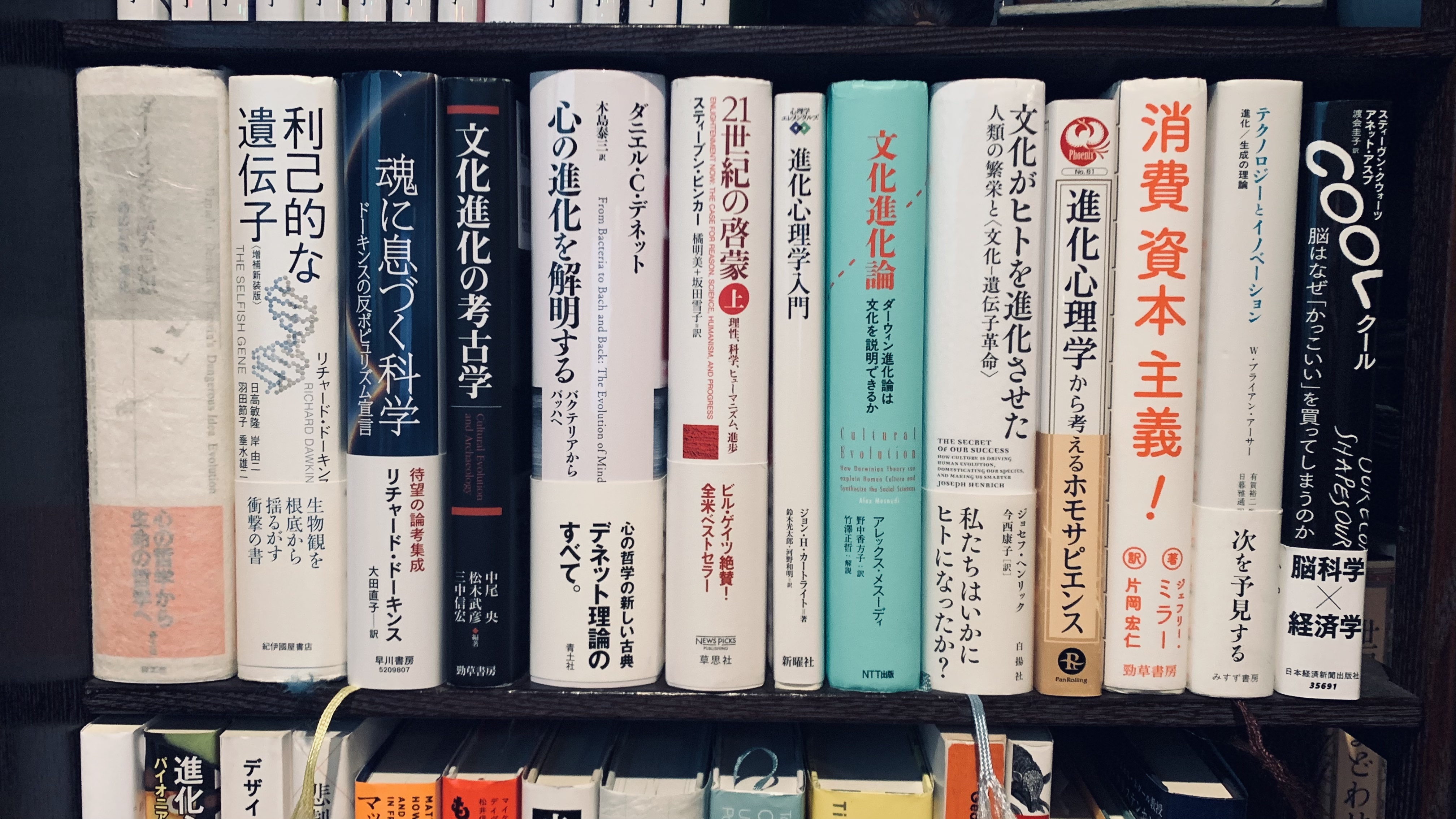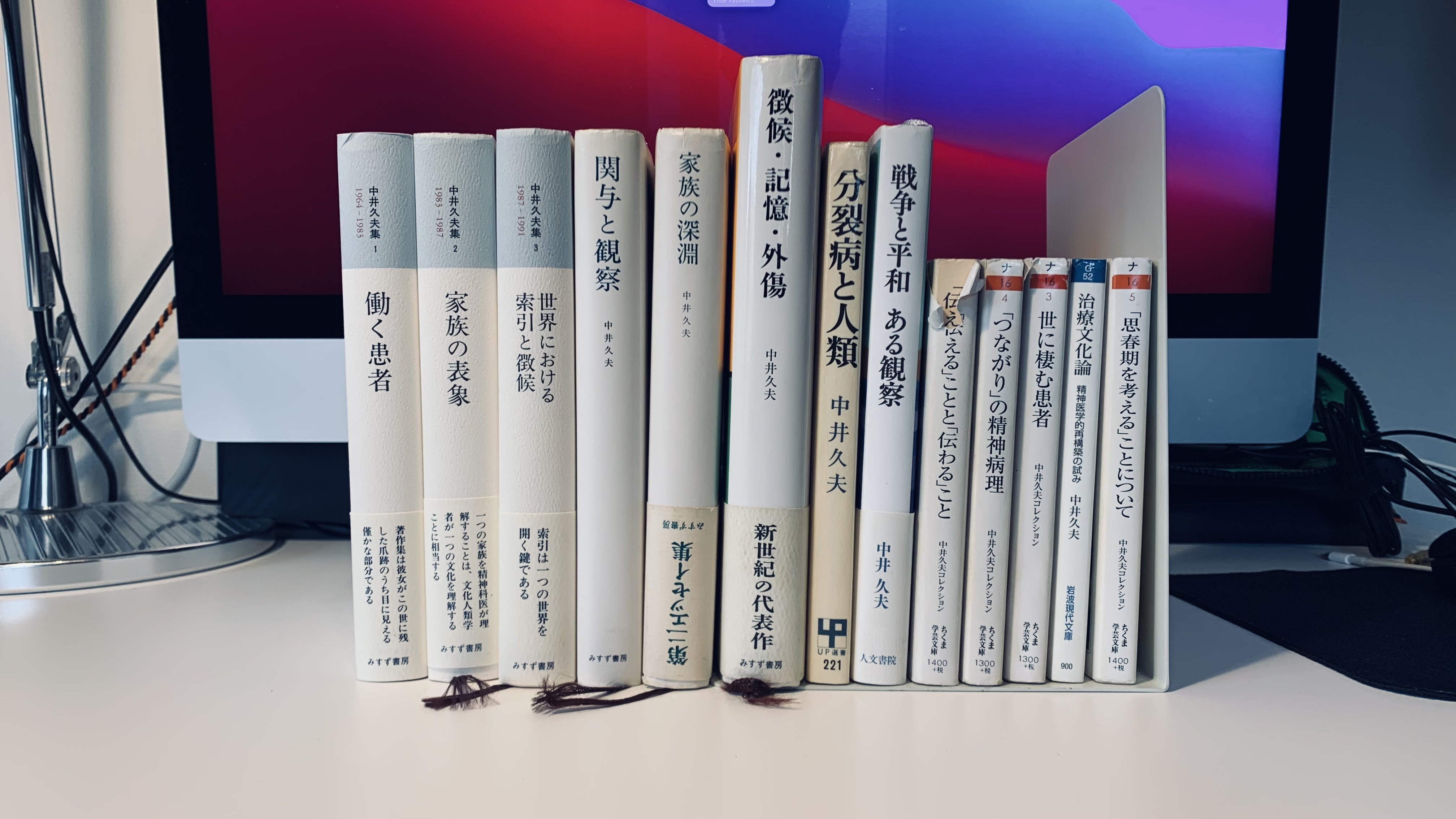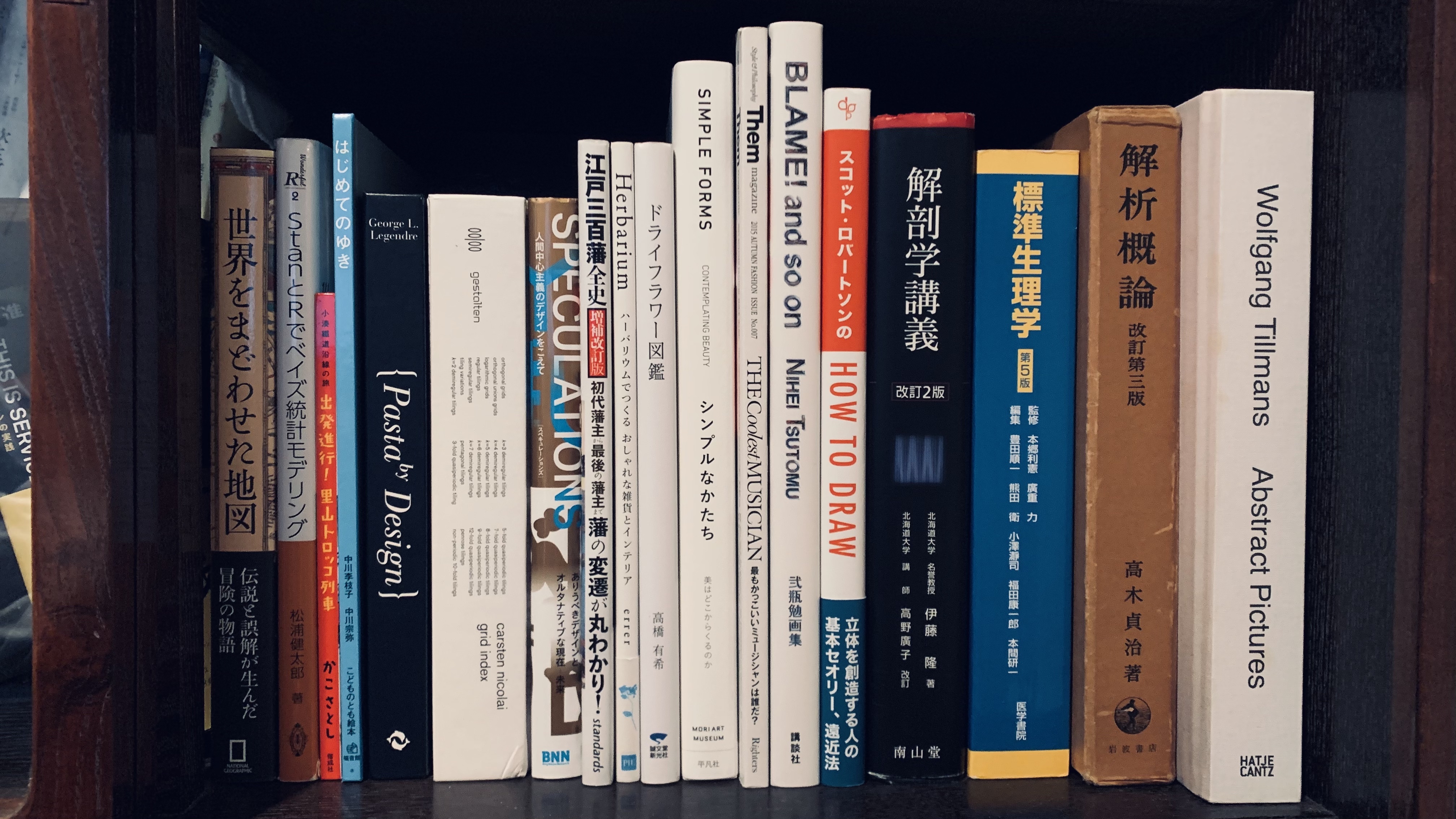The 131st Installment
Vanity Bookshelf
by Minoru Matsui,
Assistant Professor
The person living next to my family home gives me vegetables that he has grown. When I run into him later, he asks, “How were the vegetables? Were they helpful?” Vegetables are helpful. So is an iPhone. What about me? And my research? Who will find this column helpful? There are many people with boring stories, but there are few with boring experiences. Even boring people have interesting experiences. I think that people are plates of experience. We experience something, hear about someone's else experience, and remember them while missing parts or distorting them. More information is then lost, and this is communicated to others with further distortions. When a person's plate is attractive, sometimes the appeal is the plate itself and other times it is the food on top. In other words, the experience is attractive, but most of the time it is the latter. Because it is helpful. I estimate that only about 10 people will find my introductory column about my paper helpful, but what about my bookshelf, the manifestation of my reading (and cumulative reading) experience? At least I feel it is more useful than the former.
Dissertations and books are the food that scholars consume and produce (“For the sciences, papers are waste. For the humanities, they are food;” @_anohito, 2020). “Being a scholar, in other words, is just a path for one’s book collection to create another collection [...] My brain is like manure, where the maggots of other people's ideas take a break before sending their own copies around in a diaspora of information” (Dennett, 1995). It is widely known that one’s personality is more likely to be revealed on a bookshelf oozing with decisions that hurt wallets and reduce living space. Other people's bookshelves are useful not only to learn about their personalities, but also to improve the quality of one’s own book selection. By looking at the bookshelves of the people who you like, who are knowledgeable, who you want to learn from, and who you want to stay away from, you can get a variety of hints such as on how to get their attention, good books in a field, how to look smart or stupid, and books to avoid. If you are acquainted with me, it would be helpful for you to get to know me. If not, it would be helpful to know that AIIT has such a professor, and to look inside the head of someone who studies cultural evolution and design.
If my theory is correct that everyone chooses things they want you to see and think of them as the background to their webcam, then this means that many university faculty, not just at AIIT, want you to identify with their bookshelves. Unfortunately, I do not have a good bookshelf to show in the background of my room, so I will ask you to identify me with dried flowers and Miffy instead. There are usually a large number of books of specialized subjects on the bookshelves of university faculty, but how many of them have been read? My book collection is small, and the number of books I have finished reading is smaller still. I do not really like reading books, so I bury my impatience to have to read by randomly plugging books I do not want to read into my Amazon Wishlist. If there are 500 books that interest me, 250 are instantly forgotten, 100 are buried in my Wishlist, and 50 are put in my cart but never purchased, so I actually buy about 100 books. When I actually tried to determine how much of the books I have read, I found that for every 100 books, I had taken 84 into my hands, 34 were read only half-way, and 15 were finished. So the attached picture of my bookshelf includes books that I have read many times, some that I stopped reading after a few pages, and books that I have never opened at all. I hope this is understood from the many sets that only have some of the books.
I think unsorted, raw bookshelves are particularly helpful information. On the contrary, books recommended by that person are surprisingly not. Because the vanity of wanting to be seen as someone who recommends certain intelligent, difficult, highbrow, or fashionable books gets in the way of their desire to be helpful to others. It is also tempting to put books away somewhere they cannot be seen if they may raise people’s eyebrows and disapproving comments. I thought I had taken this bookshelf at random, but looking at it now, I see that I excluded my road bike catalogs. That is where my vanity draws the line.
“Vanity is so deeply ingrained in the human heart that [...] each of them boasts, and tries to find people who will admire them. [...] And those who write against it also want credit for having written it well. The people who read what they write want credit for having read it. And even I, writing this, probably have that desire, and perhaps those who read it, too...” (Pascal, 1670).
@_anohito. (2020) https://twitter.com/_anohito/status/1326797081676279816 (Accessed 2021-06-29)
Dennett, D.C.; Yamaguchi, Yasushi; Osaki, Hiroshi; Saito, Takashi; Ishikawa, Masato; Kubota, Toshihiko trans. (1995, Japanese translation 2000: p 458) Darwin's Dangerous Idea: Evolution and the Meanings of Life. Seidosha
Pascal, B., Maeda, Yoichi; Yuki, Ko trans. (1670, Japanese translation 2001: p 116) Pensées I. Chuko Classics



